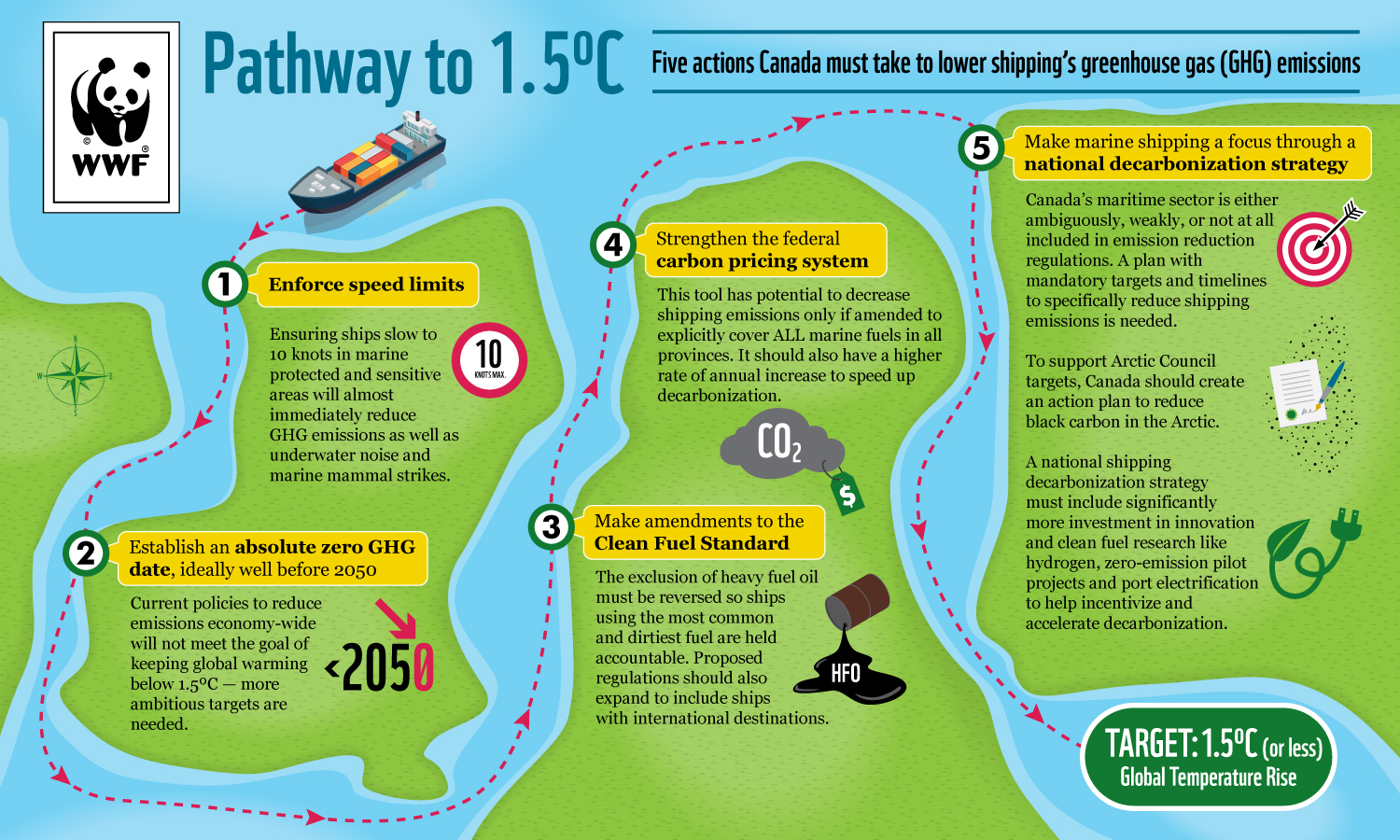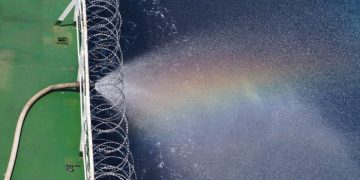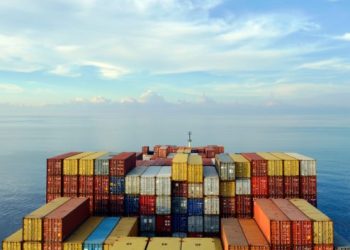According to a report by WWF, Canadian shipping alone contributed eight million tonnes of CO2 in 2019, with the organization noting that there is a need for better understanding of both emissions and impacts resulting from shipping activity in the Canadian waters.
The AIS-based modelling shows that a total of 6078 individual vessels operated in Canadian waters, consuming about 2,500 thousand tons of fuel oils in 2019, and emitting:
- 8 million tons of carbon dioxide (MtCO2)
- 156 thousand tons (kton) of nitrogen oxides (NOx)
- 3.5 kton of particulate matter (PM) 2.5 and 3.7 kton of PM10
- 0.4 kton of black carbon (BC)
- 5.6 kton of sulphur oxides (SOx).
The key findings from the modelling are:
- Bulk carriers and container ships together account for around 40% of total fuel consumption and CO2 emissions.
- The larger ships, above 10,000 gross tonnage (GT), account for around 80% of the total fuel oil consumption and CO2 emissions.
- Half of the fuel is consumed by ships spending less than a quarter of the year in Canadian waters. Nearly one third is consumed by ships spending almost all their time in Canadian waters.
- Results show a large variation in traffic density for the different ship types and regions, with the highest density around main ports like Port of Vancouver, Port of Montreal, Port of Prince Rupert, Port of Halifax and Port of Saint John.
- About 50% of the fuel is consumed in two of the eleven provinces, British Columbia and Quebec, and about 30% is consumed in the two provinces Nova Scotia, Newfoundland and Labrador. These four provinces account for about 80% of the fuel consumed in Canada.
The 565 vessels (9% of the total number of vessels) spending most of their time in Canadian waters (80–100% of their operation time), make a disproportionately large contribution – close to 30% – to CO2 emissions in Canadian waters. The passenger ships account for the largest CO2 emissions (~8%), followed by bulk carriers (6%).
Abatement measures to reduce air emissions
Despite the wide variety of available emission-reduction technologies, substitution of fossil fuels by alternative carbon-neutral fuels is required to move towards true zero-emission shipping.
It is also needed to achieve the IMO’s goal to halve greenhouse gas (GHG) emissions by 2050 and, ultimately, its vision to fully decarbonize shipping as soon as possible before 2100.
As for passenger ships, they are the largest contributors of CO2 emissions among the ships spending most of their time in Canadian waters. This makes many of them potential candidates for replacement by electric vessels, either as full-electric or hybrid-electric in combination with alternative fuels like biodiesel, liquefied natural gas (LNG) and, for example and in the longer term, hydrogen.
 The fleet of bulk carriers, the second largest contributor to CO2 emissions of the ships spending most of their time in Canadian waters, consists mainly of older and larger ships. This makes them potential candidates for replacement by vessels using hybridization in combination with alternative fuels like biodiesel, LNG, liquefied petroleum gas (LPG), methanol and, for example and in the longer term, ammonia.
The fleet of bulk carriers, the second largest contributor to CO2 emissions of the ships spending most of their time in Canadian waters, consists mainly of older and larger ships. This makes them potential candidates for replacement by vessels using hybridization in combination with alternative fuels like biodiesel, LNG, liquefied petroleum gas (LPG), methanol and, for example and in the longer term, ammonia.
Biodiesel may be well suited to substitute for oil-based fuels in the existing ship fleet: the entire fleet of ships that spend most of their time in Canadian waters are potential candidates for this.
Substitution of fossil fuels by alternative carbon-neutral fuels must go along with enhanced energy efficiency of ships. This requires rethinking operationally, and an intensified uptake of proven energy recovery and energy-efficiency technologies. The considerations above also place a new and stronger emphasis on system-level thinking and integration of all available technologies.
Recommendations
The report presents a first assessment of ship emissions, potential low- and zero-emission technologies and policy measures to decarbonize the ships in the Canadian fleet, recommending that the following should be further considered:
- Cost-benefit analysis calculating emission reductions and costs associated with measures for the ships in the Canadian fleet.
- Barrier studies to further investigate the barriers within each main ship segment.
- Separation between domestic and international traffic, and traffic only passing through Canadian waters based on the traffic pattern between domestic and international ports.
- Development of a ‘barometer’ visualizing the green shift in Canadian shipping to clearly communicate the status of the restructuring of the Canadian domestic fleet to low- and zero-emission, and to highlight the need for further measures.
- A roadmap for the green transformation of the maritime sector in Canada.




























































